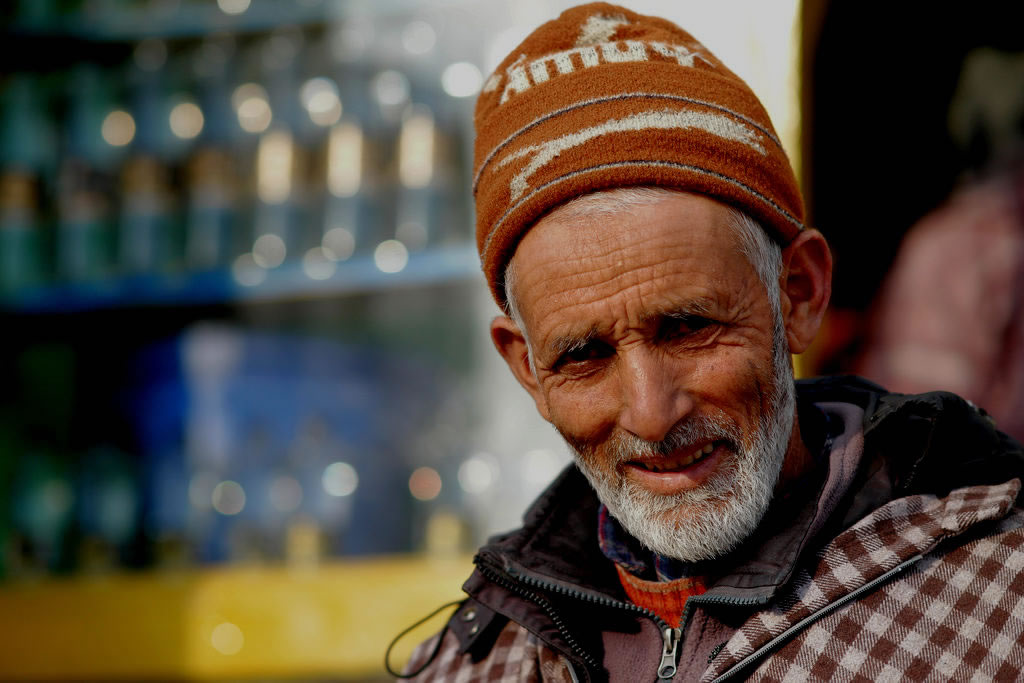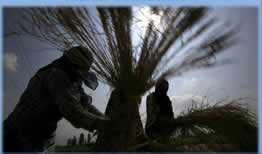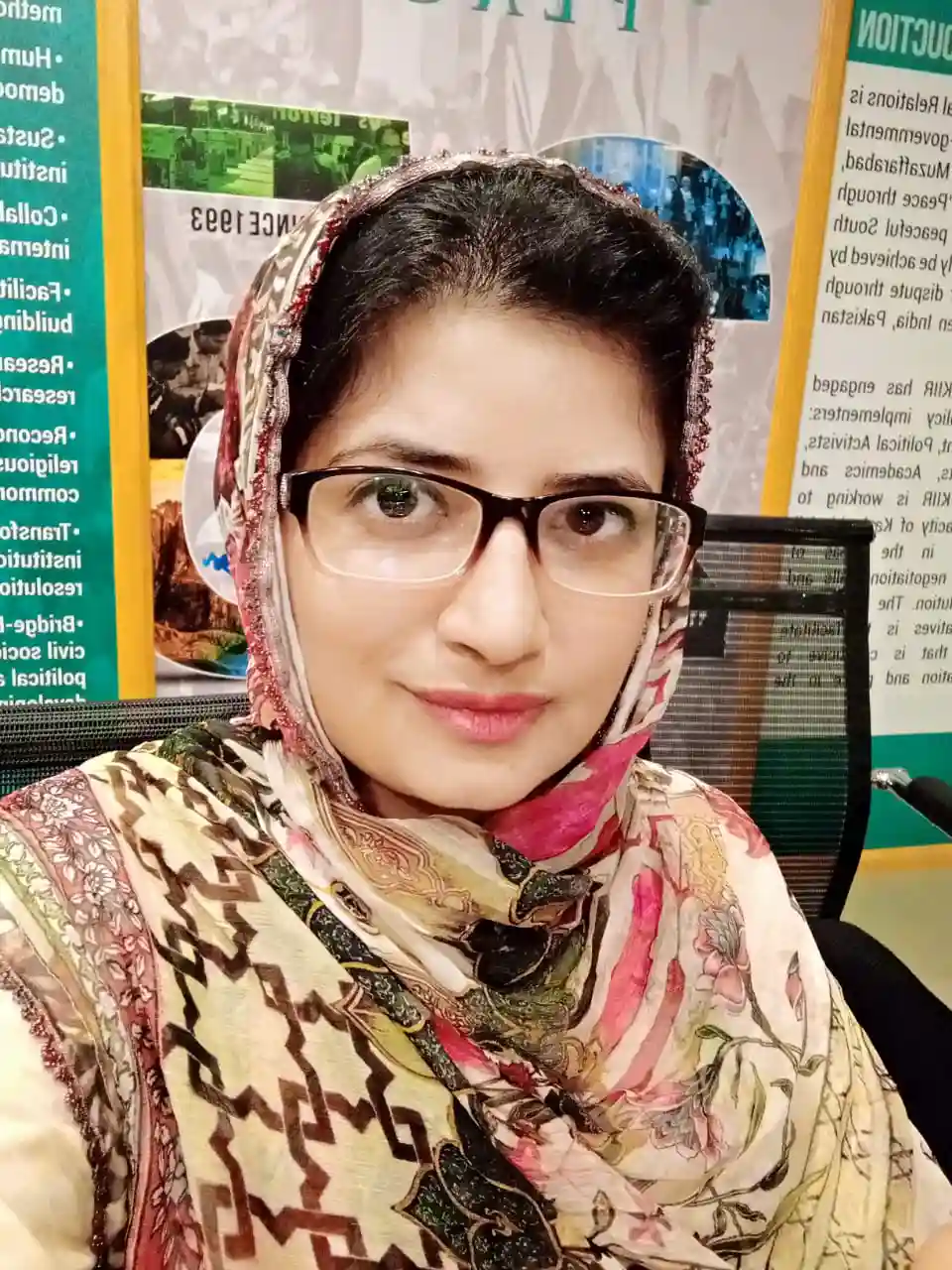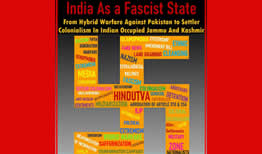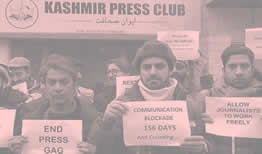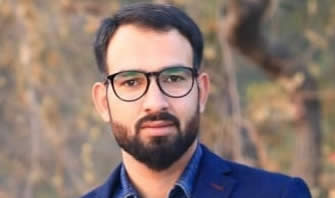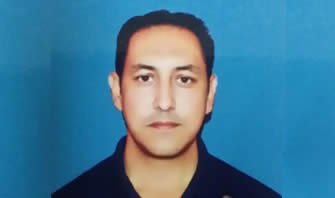Women’s Empowerment in Peacebuilding: Efforts in Jammu and Kashmir
Women’s Empowerment in Peacebuilding: Efforts in Jammu and Kashmir
Abstract:
The Kashmir conflict has profoundly impacted women's roles and contributions to peacebuilding efforts. Women in Jammu and Kashmir have been historically marginalized, even though they have unique views and special talents that are vital for long-lasting peace. This research paper explores the creation of effective policies, regulations, and strategies aimed at boosting the participation of women and representation in peacebuilding initiatives. It shows the actionable strategies for decision-makers, including quota systems and leadership training courses, motivated by successful models from other conflict-affected areas.
By Noshiza Rani
Semester International Islamic University of Islamabad
Furthermore, the paper also emphasizes the
important engagement of women in peacebuilding, including their positions as
community leaders, mediators, and supports for social justice. By resolving the
challenges women face and recognizing their potential, this research paper aims
to promote a more inclusive approach to peacebuilding in Kashmir, ultimately
leading to a more just and peaceful society.
Introduction:
In 1947, India and Pakistan both gained independence
from British rule, the region has been distressed by the Kashmir conflict,
which is like a nourishing injury in the heart of South Asia. The battle has
grown into an intricate and deadly web of state violence, armed insurgency, and
ongoing hostilities between India and Pakistan, motivated by competing claims
to territorial dominance and self-determination even though it has greatly
affected the region, the account usually marginalizes the long-lasting wounds
suffered by Kashmir women. …..
The Kashmir conflict has affected women in multiple
ways including many of them lost their sons, husbands, and fathers and left
them alone and unguarded. Women are suffering from anxiety, depression, and
post-traumatic stress disorder due to ongoing conflict. Many are compelled to
leave their houses due to poor living conditions. Due to economic instability,
there are limited job opportunities for women. Their future is impacted by
interrupted education and restricted access to education. If they are victim of
violence or widows, they face discrimination and social stigma. Their future is
impacted by interrupted education and limited access to education. Women’s
involvement in peacebuilding efforts and decision-making processes is limited.
Women empowerment is necessary if we want to build
peace in the region. Men and women both genders deserve equal rights and
opportunities. Society must give empowerment to women because empowered women
can easily support their families and ensure their health, education, and
well-being. The economy grows and everyone benefits when women have jobs and
run businesses. Women are facing challenges but despite challenges, they are
working towards peace and stability. They are making institutions,
organizations, and networks to provide help and services to affected women.
This study is significant because it will explore
the condemnatory role of women in peacebuilding efforts in Jammu and Kashmir
and will elaborate on their experiences, opportunities, challenges,
contributions, and how they make strategies to intensify their empowerment and
their participation in conflict resolution and peacebuilding initiatives. This
study examines the significant role that women have in promoting peace and
resolving conflicts in Kashmir. Even though women have endured a great deal of
violence, loss, and displacement as a result of the conflict, historically they
have had fewer voices and participated in fewer peace initiatives.
This article aims to give attention to the fact that
while many innocent women are killed or severely injured their battles go
unnoticed. To Develop strategies for boosting women's participation,
representation, and effect in peacebuilding initiatives. Give actionable pieces
of advice to policymakers, workers, and groups who focus on peace and women's
empowerment in the region and point out and examine the contributions,
challenges, and opportunities for women in peacebuilding.
Hypothesis:
The hypothesis centers on the idea that women in
Jammu and Kashmir are not included in efforts to bring peace which stops them
from obtaining power and makes it difficult to gain lasting peace in the
region. Women are eliminated from peacebuilding activities which has limited
their empowerment.
Increasing Participation of Women in
Peacebuilding: Creating Effective Policies:
The involvement of women in peacebuilding is not
only a stuff of fairness but a strategic necessity for gaining sustainable and
lasting peace. In spite of their crucial contributions, in peacebuilding
efforts, women are till notably underrepresented. This research aims to address
how productive policies can be developed to increase women’s participation,
representation, and influence in these crucial initiatives.
Women’s participation in peacebuilding efforts is
noticeably constrained, expressing more general structural problems. For
example, women make up only 2% of mediators in peace negotiations. This
striking underrepresentation is similar to in peacekeeping operations, where
women constitute just 10% of police and military personnel. In post-conflict
nations, women make up only 15% of legislative seats. These figures show a
significant discrepancy between the roles women play in conflict areas and
their representation in official peacebuilding processes.
The obstacles women face in these roles are
multiples. Gender stereotypes and biases reinforce the idea that women are less
qualified of controlling peacebuilding responsibilities compared to their male
colleagues. These societal perceptions not only weaken women's contributions
but also dishearten their participation. In addition to, the absence of
resources and finance more obstruct women’s involvement. Projects led by women
frequently struggle with inadequate financial support, which restricts their
ability to contribute effectively to peacebuilding projects. Violence and
insecurity also pose serious barriers, since women engaged in peacebuilding may
be the target of threats or physical violence, which can deter their
participation and weaken their effectiveness.
It is necessary to make sure that women's perspectives are added in peacebuilding processes is fundamental. That means actively incorporating women into decision-making roles and providing them forums to affect policy and negotiations. Just representation alone is insufficient; it must be coupled with real inclusion where women's viewpoints are not just acknowledged but also actively shape the results of peacebuilding initiatives. Gender mainstreaming includes integrating gender viewpoints into all facets of peacebuilding. Gender mainstreaming make sure that the unique requirements and issues faced by women are considered in the design and implementation of peacebuilding initiatives. This method aids in developing a more comprehensive and effective peacebuilding plan that addresses the underlying causes of conflict and promotes just solutions.
Supporting women’s leadership and decision-making is important for increasing their role in peacebuilding. Empowerment includes not only increasing women’s ratio in peacebuilding roles but also giving them with the necessary resources and power to lead and influence decisions. This can add leadership development choices, mentorship programs, and making opportunities for women to take on high-profile roles in peace talks and policy formulation. Safeguarding women from violence and making sure their safety is crucial for their effective engagement in peacebuilding. Policies should add provisions to protect women from threats and violence, both within war zones and in peacebuilding contexts. Ensuring that women can work and participate without fear of harassment or damage is essential for their meaningful participation.
Setting quotas for women in peace talks and
decision-making organizations is one direct option to guarantee increased
representation. Quotas can assist in removing the obstacles of entrenched
gender stereotypes and provide women with the chance to participate at upper
levels. Crafting training programs goaled at women peacebuilders could equip
them with the fundamental skills and information to excel in their roles. These
programs can cover areas such as talks, war resolution, and leadership, helping
to prepare women for important roles in peacebuilding.
Allocating funds specifically for women-led peacebuilding projects can address the financial hurdles that women face. This special financing can help multiple aspects of peacebuilding, including grassroots activities and larger-scale projects led by women. By making sure that funding criteria prioritize gender equality can aid in directing resources towards initiatives that encourage women’s involvement and address gender-specific challenges in conflict and post-conflict settings. Giving financial and logistical help to women’s organizations are engaged in peacebuilding can improve their ability and effectiveness. Acknowledging and valuing their contributions is crucial for sustaining their efforts and promoting their constant participation. Recognizing the critical role of women’s organizations in peacebuilding can enhance their visibility and impact efforts. This recognition can also help in garnering additional support and resources from various stakeholders.
Creating and
imposing policies to stop and address to gender-based violence is essential.
These regulations should give attention on safeguarding women in conflict areas
and peacebuilding contexts and giving help for survivors. Making sure that
accountability for those who commit crimes of gender-based violence and giving
justice for victims is essential for developing a safe space for women. Support
services for survivors, including counseling and legal support are important to
aid them recover and engage completely in peacebuilding efforts.
UN Security Council Resolution 1325 (2000)
resolution highlights the value of women’s involvement in peacebuilding and
advocates for more women to be added in peace processes. It has been
instrumental in advancing gender-inclusive peacebuilding frameworks and has
established a precedent for including women’s viewpoints into international
peace efforts. Networks such as Women’s International League for Peace and
Freedom and the Global Network of Women Peacebuilders offer for women forums to
exchange their experiences, develop their skills, and advocate for increased
participation in peacebuilding. These networks show the influence of group
action and support in necroing women’s roles in peace.
Adding women’s organizations, government entities,
and foreign partners in policy formulation and execution guarantee that
policies are applicable and efficient. Working together among these
stakeholders helps in addressing diverse requirements and leveraging group
expertise. Giving training and resources to those individuals for implementing
policies is crucial. Ability building makes sure that executors are well-equipped
to support women’s participation and handle any hurdles that may come up.
Regular tracking of progress, assess the efficacy of policies, and adjusting
plans as needed are important for ensuring that regulations gain their desired
results. Monitoring and evaluation help in identifying gaps, assessing impact,
and making necessary improvements.
Improving the involvement, representation, and
impact of women in peacebuilding necessitates a multidimensional strategy that
includes deliberate policies and actions. Through prioritizing inclusion,
empowerment, gender mainstreaming, and safety, a more equitable and
long-lasting peacebuilding framework can be established. The significance of
these ideas is emphasized by this research, which also provides useful suggestions
for creating laws that will encourage women's participation in peacebuilding
initiatives.
Improving women’s involvement, representation, and
impact in peacebuilding necessitates a multidimensional strategy involving
deliberate policies and actions. By prioritizing on inclusion, gender
mainstreaming, empowerment, and safety, we can make a more equitable and
long-lasting peacebuilding framework. This research underscores the importance
of these principles and also provides useful and practical suggestions for
creating influential policies to help women’s roles in peacebuilding efforts.
Encouraging participation of women and
Representation in Peacebuilding Initiatives: Actionable recommendations for
Policymakers:
Women’s participation in these efforts is not just
essential for establishing long lasting peace but also for guaranteeing that
peacebuilding procedures are thorough and all inclusive. Nowadays, women's
involvement and representation in peacebuilding in Kashmir are still very low
despite their ability to bring significant change. This thorough analysis
offers actionable recommendations for policymakers goaled at boosting women’s
involvement and their impact in peacebuilding efforts in Kashmir.
Women's contributions in peacebuilding in Kashmir
are frequently underestimated and underrepresented. Although women have been
participated in multiple grassroots and community-level peacebuilding
initiatives, their presence in official peace talks and decision-making forums
are still very limited. Data on women's participation in peacebuilding roles is
les, but informal proofs recommend that women’s contributions are very
important but marginalized. Women are frequently viewed as weak match instead
of actively participants in peace processes.
Numerous hurdles obstruct women’s full
participation in peacebuilding in Kashmir:
Long standing societal conventions and stereotypes
frequently limit women's positions to traditional and less powerful roles.
Women are discouraged from participating in official processes and have less
opportunity to contribute to peacebuilding as a result of these cultural
beliefs. Many times, women face considerable challenges when they try to access
resources and opportunities for involvement in peacebuilding. Institutional
biases, budget shortages, and lack of assistance further limit their
participation. Moreover, security concerns and the danger of abuse can deter
women from participating in peacebuilding projects, especially in
conflict-prone zones.
Principles for Promoting Women’s Participation
It is crucial to make sure that women’s opinions are
heard and valued in peacebuilding processes. Policies must actively consider
women’s viewpoints and establish forums for their meaningful involvement.
Empowering women through training and support can boost their leadership
abilities. Increasing the ability of women’s organizations is also important
for enhancing their influence.
Addressing safety concerns is important for
encouraging women’s participation in peacebuilding. Women should be protected
from violence and harassment by policies. Fair distribution of support and
adequate financial resources are vital to enable women’s active contribution in
peacebuilding. gender equality in
resource allocation should be supported by policies that give funding for
projects which led by women.
Actionable Recommendations for Policymakers
Set quotas for women in peacebuilding bodies and
decision-making platforms could help ensure that women have a seat and
authority at the table. Quotas can serve as a powerful tool to cut down hurdles
and facilitate women’s participation in upper-level talks and policy
discussions. Incorporate women’s viewpoint into peacebuilding plans by
facilitating regular consultations with women’s groups and civil society organizations.
Integrating women’s groups in dialogue and planning processes make sure that
their voices are heard and their requirements addressed.
Create and impose thorough training programs focused on talks, negotiations, conflict resolution, and leadership skills for women. These initiatives can improve women’s capacities to engage effectively in peacebuilding and take on leadership roles. Ice logistic support and funding to women’s networks and organizations which are involved in peacebuilding. Empowering these networks can boost their capacity to impact policy and drive change. Set and implement protection mechanisms to guarantee the security of women engaged in peacebuilding efforts. This involves measures to stop and respond to threats and abuses against women in conflict areas. Create safe environment and support systems for women to participate in peacebuilding without fear of violence or harassment. Ensuring a safe environment is essential to allowing women to full participate.
Create separate funding sources specifically for programs and efforts in peacebuilding led by women. Targeted funding can aid various facets of women’s involvement, including capacity building, advocacy, and grassroots projects. Make sure that funding criteria must give priority to gender equality and support women’s involvement. Equal and fair distribution of resources can address close gaps and encourage women’s involvement in peacebuilding. They must Launch campaigns and start initiatives to raise awareness about the significance of women’s involvement in peacebuilding. To Publicize women’s contributions and the benefits of their participation can help to win over people and encourage more inclusive peacebuilding techniques. Promote advocacy initiatives aimed at highlighting gender stereotypes and encouraging women’s roles in peacebuilding. Advocacy has the power to shift societal opinions and establish a more supportive environment for women’s involvement.
Include regional, local, national, and global stakeholders in cooperative efforts to promote women’s participation in peacebuilding. Forming alliances with various parties can improve the effectiveness of peacebuilding projects and promote broader support for women’s roles. Work together with non-governmental organizations (NGOs) that just prioritize women’s rights and peacebuilding. NGOs frequently have valuable expertise, knowledge and resources that can help and boost women’s contributions to peace efforts. Monitoring and evaluation are crucial to make sure the effectiveness of policies and initiatives
Establish mechanisms for tracking women’s
participation in peacebuilding and assessing the result of policies. Regular
monitoring helps to identify accomplishments and areas for improvement,
ensuring that regulations gain their intended objectives. Must develop channels
for gathering feedback from women involved in peacebuilding. Using feedback to
refine and adjust policies helps address raising issues and improve the
effectiveness of initiatives.
Contributions of Women in peacebuilding
initiatives within the Kashmir conflict:
Women have been fundamental in forming history and
society of Jammu and Kashmir. Rani Tara
Devi was one of the earliest recorded female figures who ruled the area from
1760 to 1775 and was renowned for her bravery and administrative prowess.
Another noteworthy queen was Rani Durgavati, who fought against Afghan invaders
from 1775 until 1780. During the Indian Rebellion against colonial rule of
British in 1857, Maharani Lakshmana of Jhansi encouraged the uprising in Jammu
and Kashmir.
In 20th century, women like Begum Akhtar Jahan and
Krishna Misri became politicians and independence activists. In 1951, Begum
Akhtar Jahan was the first lady to conduct elections in Jammu and Kashmir while
Krishna Misri worked hard for the women's rights and education. Begum Zafar Ali
was a well-known politician and social worker, and supported women's
empowerment and she was a prominent figure in the region's politics.
Reformers and
social activists have made major contributions to Jammu and Kashmir's society.
Nighat Shafi Pandit has worked for women's education, healthcare and education,
while Anjum Zamari Habib has given attention on women's rights, justice, and
peace. Parveena A hanger she is the
founder of the Association of Parents of Disappeared Persons (APDP) and has
advocated for justice and human rights, especially for families of disappeared
persons.
In addition, the region has also produced gifted
artists and cultural figures. Zohra Begum Kaul was singer writer and a renowned
singer who encouraged Kashmiri music and culture. Raj Begum was the renowned
vocalist dubbed as the "Nightingale of Kashmir," was a legendary
singer who made contributions to Kashmiri theater and film. Another well-known
name in Kashmiri theatre and cinema was Naseem Banu, an actress and singer.
In recent times in 2016, Mehbooba Mufti have made
history and she became the first woman Chief Minister of Jammu and Kashmir.
Sister of Sajad Gani Lone is Shabnam Lone who is a politician and social worker
and she worked for women's empowerment. Naeema Major is a renowned, author,
poet, and social activist and she has been a prominent vocal for women's rights
and social justice.
These women along with many others, have played an
essential role in shaping Jammu and Kashmir's history, culture, politics, and
society. Their efforts have made it possible for women in later generations to
pursue a variety of careers and contribute to the development of a just society
and more equitable. Instead of facing numerous hurdles, women in Jammu and
Kashmir continue to motivate and empower others, making a lasting impression on
the region.
Women in Kashmir have played a prominent role in
human rights advocacy as the battle continues. Organizations headed by women, such
as the Jammu and Kashmir Coalition of Civil Society (JKCCS), have been
extensively documented and highlighting human rights abuses.
Ahangar and other activists have organized
communities and interacted with national and international organizations. Their
actions have brought attention to the suffering of those impacted by conflicts
and have pressured authorities to address violation of human rights. Through
persistent advocacy, these women have not only given the victims a voice but it
also shaped public opinion and policy and making human rights a central
challenge in peacebuilding discussions.
In order to highlight the conflicts varied effects,
women have also spearheaded public awareness campaigns. These initiatives
frequently tackle issues such as sexual assault, forced relocation, and the
general humanitarian catastrophe resulting from the conflict. By planning
rallies, distributing educational materials, and utilizing social media
channels, women have been able to enlighten the public and rally support for
peacebuilding efforts.
One of the notable campaigns which was led by
various women’s organizations who gave attention on raising awareness about the
influence of militarization on local communities. These efforts amplified the
negative impacts of military presence on daily life, including interruptions to
education and healthcare services, and asked for a halt to military operations
in order to lessen civilian suffering. Campaigns of this kind have been played
a significant role in forming public opinion and garnering assistance for peace
measures that thinks the requirements and experiences of women and other
affected groups.
At the grassroots level, women have played a
critical role in planning and directing community-based peacebuilding
initiatives. They have set up local peace platforms and conversation groups to
promote communication and understanding among various community segments. These
platforms give a space to individuals from different backgrounds to come
together, exchange their experiences, and work towards shared goals.
Women-led community projects sometimes give
attention on resolving local problems and fostering peace. For instance, women
have planned inter-community discussions to bridge tensions between different
ethnic and religious groups. These discussions’ objective to address local
conflicts, foster trust, and promote social cohesiveness. By participating
directly with community members, women have been able to address the underlying
causes of tensions and contribute to a more peaceful community environment.
Furthermore,
women have also been instrumental in organizing and running support networks
for conflict affected individuals. These networks provide a wide range of
facilities such as counseling, legal assistance, and financial help. APDP is
organization which was founded by women and provide crucial help to families of
displaced people, which helps them with judicial system and seek justice.
In addition to legal and financial assistance, these
networks provide psychological care to individuals who have been traumatized by
the conflict. Women have started counseling groups and support groups where
trauma survivors can open their experiences and get emotional support. These
initiatives are crucial in helping people fight with the trauma of conflict and
in fostering healing and recovery.
At the local
level, women have been actively engaged in mediating conflicts. Their participation
in mediation initiatives sometimes brings a distinctive perspective on
resolving conflict. in order to resolve conflicts and create consensus, women
mediators tend to concentrate on setting common ground and promoting
communication.
For instance, women have been essential in mediating
conflicts between local people and security forces. Their attempts in mediation
have aided de-escalate tensions and facilitate agreements that deals with the
issues raised community. Acting as impartial facilitators, women have been able
to negotiate difficult relationships and promote amicable resolutions to
conflicts.
In addition to serving as direct mediators, women
have facilitated extensive dialogues among numerous stakeholders such as
government officials, local authorities, and civil society groups. The purpose
of these dialogues is to resolve larger hurdles regarding to the conflict and
to establish collaborative ways to peacebuilding.
Women’s facilitation of discussions has frequently
given attention on making sure that under represented voices are heard in the
peace process. By establishing inclusive forums for discussion, women have
played a prominent role in ensuring that diverse viewpoints are taken into
account in peacebuilding efforts. That inclusivity is vital for creating
comprehensive and long-lasting solutions to the conflict.
Women have also concentrated on enhancing their
leadership skills and abilities in order to strengthen their roles and
positions in peacebuilding. Women who
participated in training programs and workshops are more prepared to negotiate,
resolve conflict, and manage organizations. These programs are organized to
develop the ability of women to participate actively in peace processes and to
engage effectively to peacebuilding initiatives.
Initiatives
of leadership development have aided women get self-assured and more credible
in their positions as peacebuilders. By improving their skills and knowledge,
these programs have enabled women to head peacebuilding activities, represent
their communities, and advocate for their requirements.
Women head
educational initiatives have played a helpful role in disseminating
peacebuilding knowledge and skills. Seminars, workshops and training sessions
focused on conflict resolution, peace education, and advocacy have been
organized by women. The main purpose of these educational initiatives is to
establish a group of competent peacebuilders who can easily control the complexities
of Kashmir dispute.
For instance,
women-led organizations have run the training programs for young people and
community leaders, teaching them about techniques of conflict resolution and
the value of dialogue. These efforts help to make ready the coming generation
of peacebuilders and to make sure that peacebuilding efforts will be sustained
throughout time.
Women in Kashmir have been actively supporting
gender equality as a crucial element of peacebuilding. They have drawn
attention on the specific effects of the fighting on women and girls, including
issues such as sexual violence, discrimination, and the interruption of
education. By speaking out in favor of gender-sensitive regulations and
attending on the needs of particular genders, women have contributed to ensure
that peacebuilding initiatives are inclusive and equitable.
Women’s advocacy has led to increased concentration to the needs of women and girls in peacebuilding talks. For example, women have campaigned for the incorporation of gender viewpoints in peace agreements and to have measures to address sexual violence. These programs have aided in the comprehensive and successful peacebuilding buildings that take into account the diverse experiences of those individuals who are affected by war. exchanges, and collaborative projects have helped to reduce tensions and promote mutual
Those women who are involved in peacebuilding
efforts also challenges like face security risks, threats and violence. Their
contribution in campaignspeak talks and mediation efforts can expose them to
retaliation from different parties involved in the conflict. Making sure the
safety of women peacebuilders is crucial for maintaining their participation
and efficacy. For instance, women who support human rights or participate in
mediation efforts may face threats from extremist groups, radical organizations
or opponents of women work. Ensuring that women peacebuilders are safeguarded
and supported is crucial for their continued participation and for the success
of peacebuilding initiatives.
Through
campaigning, conflict resolution, capacity building, grassroots mobilization
and the advancement of gender equality, women have made significant
contributions to peacebuilding activities within the Kashmir conflict. Their
work has been instrumental in resolving the human cost of the conflict,
promoting communication, and creating a more inclusive society. It is
imperative to acknowledge and supporting the pivot roles played by women is
crucial for gaining long lasting peace in Kashmir. With sustained efforts to
resolve the challenges faced by women and to highlight their contributions will
be key to building a more peaceful and egalitarian future for the region.
Findings:
1.
In order to ensure that women's views and perspectives
are central to decision-making, effective policies should place a high priority
on gender-sensitive strategies that actively involve them in all stages of
peacebuilding processes, from conflict prevention to post-conflict
reconstruction.
2.
In addition to capacity-building initiatives that
give women leadership and negotiating skills, policymakers should enact quotas
or affirmative action policies to increase the representation of women in peace
talks and local governance.
3. As community leaders, peace advocates, and mediators, women have been instrumental in promoting dialogue and reconciliation within their communities, showcasing their special capacity to build trust and advance lasting peace.
References:
https://www.peaceinsight.org/en/articles/women-artisans-crafting-peace-jammu-kashmir/
https://reliefweb.int/report/india/resilience-amidst-conflict-women-kashmir
https://en.wikipedia.org/wiki/Peacebuilding_in_Jammu_and_Kashmir
https://www.orfonline.org/expert-speak/policy-intervention-in-jammu-kashmir
https://migrationletters.com/index.php/ml/article/download/7788/5044/20387
https://migrationletters.com/index.php/ml/article/download/7788/5044/20387
Related Research Papers
